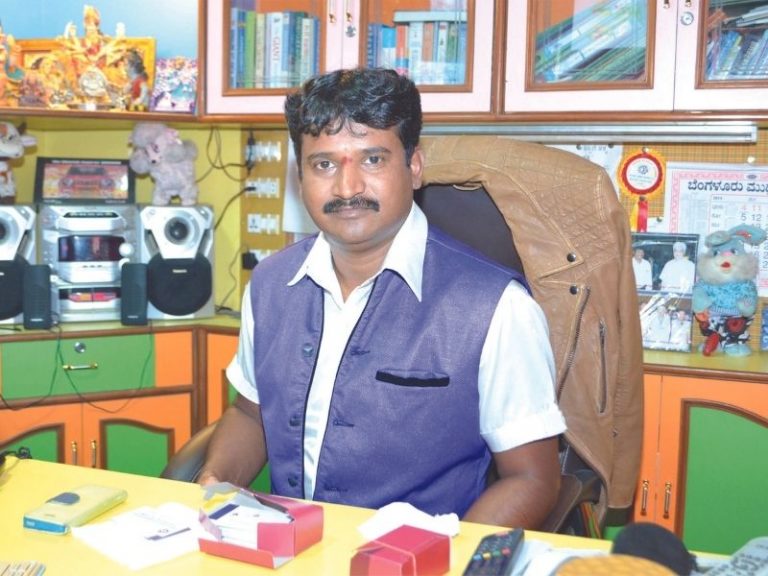Karnataka: Sorry education record
-Reshma Ravishanker (Bengaluru)
With state legislative assembly elections less than six months away, the auguries are not good for the state’s BJP government. The party’s strategy to arouse sub-nationalist Kannada pride by reviving a border dispute with Maharashtra has backfired with the BJP government at the Centre refusing to intervene in the dispute between two BJP-ruled states. Moreover, the powerful Lingayat community has launched an agitation demanding reservation in government jobs and education institutions, even as the opposition Congress party’s campaign against pervasive corruption in the administration is gathering momentum.
The BJP government’s record in education — which unlike most north Indian states is an important electoral issue in Karnataka — is also attracting widespread adverse comment. For instance, in the year past the government has been focused on politicising education rather than upgrading academic standards. It has stoked the hijab (headscarf), saffronisation of textbooks controversies and is beset with corruption accusations against the education ministry.
In November, a Unified District Information System for Education (UDISE) 2022-23 report revealed alarming neglect of primary-secondary education in the state highlighting lack of functional toilets for girl children and huge deficit of computers and Internet connectivity in government schools.
During the 82-weeks closure of education institutions because of the Covid pandemic, children’s stress and mental well-being emerged as a major issue. Despite this on December 14, the education ministry issued a circular mandating annual exams for class V and VIII students in all 69,310 government and private schools affiliated with the state examination board. According to the circular, these exams will be held in March with question papers set by the Karnataka School Examination and Assessment Board (KSEAB) and evaluation of answer papers conducted at the ‘taluk level’.
However, the circular states that children who fail won’t be detained in their current classes. The purpose of the ‘assessment’ is to measure general learning outcomes of children in primary education, says the circular. “For this reason, they should be called assessments and not board exams,” says R. Vishal, commissioner, department of public instruction, who adds that the purpose of the exams is to identify children who need remedial education.
Education officials insist that assessing children’s learning outcomes is in line with recommendations made in the National Education Policy (NEP) 2020. Moreover, the circular highlights that s.16 of the landmark Right of Children to Free and Compulsory Education (RTE), Act, 2009, which initially prohibited examinations and mandated compulsory yearly promotion of classes I-VIII children, was amended by the BJP government at the Centre in 2019 to allow detention of students who fail twice.
Private schools in Karnataka are divided over the introduction of exams in primary/elementary education. Comments D. Shashi Kumar, general secretary, Associated Managements of Private Schools in Karnataka, which has 3,900 member schools: “We are in favour of annual exams for class V and VIII children because learning outcomes dropped drastically during the Covid pandemic when children were out of school. There’s a need to rigorously assess children’s learning outcomes to provide appropriate remedial education. Though the circular says that no child will be detained for failing these exams, we believe that after two attempts, children who fail should be retained in the same class to ensure they don’t need to continuously struggle in higher classes. However, retention of children should start from the next academic year as this order has come so late in this academic year.”
On the other hand, the Registered Unaided Private Schools Association (RUPSA), which has 13,000 member schools, vehemently opposes stressful exams for young children. “We condemn this circular. NEP 2020 says that learning should not be for exams. Introducing exams will force children into rote learning again. We urge the education minister not to impose his political agenda on children. Rather than introducing stressful exams for children, government should fill teacher vacancies to reduce teacher-pupil ratio in government schools,” says Lokesh T, president of RUPSA.
Likewise, Dr. A.S. Seetharamu, former professor of education at the Institute of Social & Economic Change, Bengaluru, believes formal exams for young children in early years is inadvisable. “It is well established that formal exams don’t measure real learning outcomes. Continuous testing and assessment through the year is the best methodology to assess children’s learning outcomes and provide necessary remedial aid. It is pertinent to note that developed countries don’t have annual exams for young children because they cause stress and anxiety. This is a depressing proposal and should be withdrawn. Instead, I advise the government to focus on training teachers to continuously assess children and provide personalised remedial education,” says Seetharamu.
By all indications, the BJP’s education record of the past four years is unlikely to be an election winning issue.
Also Read: Major education events of 2022
















Add comment